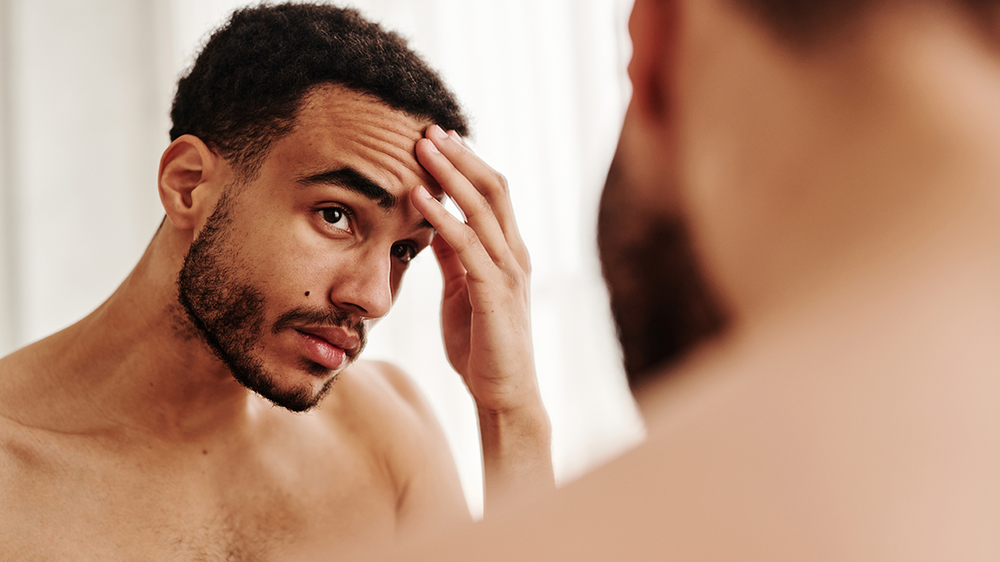“Nature,” as a quote usually attributed to Coco Chanel has it, “gives you the face you have at 20—it’s up to you to merit the face you have at 50.”
It’s possible that the French post-war fashion doyenne was referring to the age-old “nice thoughts/nice face” adage, but it’s vastly more likely that she was talking about how well you take care of your skin. And yet, more than a quarter of a century after the word “Metrosexual” was coined, men’s relationships with grooming essentials as simple as moisturizers remain confused.
The use of lotion-type salves goes back, the best evidence suggests, as far as ancient Sumerians applying pulverized plants and tree oils to their facial skin in 3,000 BC, but the practice has come a long way since then, not least commercially: a study by Fortune Business Insights predicted that the skincare market’s global value would hit US$145.82 billion by 2028.
But how’s it coming along scientifically—and how well does Chanel’s comment stand up here in the first half of 2022?

Patricks AM1 Moisturizer (US$135) contains hyaluronic acid and squalane, two hydrating ingredients dermatologists recommend. Patricks
“Regardless of the season or the weather, it’s important to moisturize twice daily because skin, by nature, evaporates,” Beverly Hills-based dermatologist Dr. Harold Lancer, who counts a host of celebrities among his clients, tells Robb Report. “Dehydration is cutaneous evaporation, and a moisturizer will help hydrate the skin.”
To track down solutions that actually offer a clinical, rather than just an emotional, salve, though, Lancer insists that consumers should read the small print. “In real estate, the saying is ‘Location, location, location.’ Well, in skincare, it’s ‘Ingredients, ingredients, ingredients.’ The quality of the ingredient’s source also makes a difference.”

Aesop In Two Minds Facial Hydrator (US$60) was made with combination skin in mind. Aesop
Dr. Corey L. Hartman, founder of Skin Wellness Dermatology in Birmingham, Ala., also recommends seeking out “active ingredients that have science behind a moisturizer’s efficacy”, citing “ceramides, squalane, glycerin, petrolatum and hyaluronic acid” as clinically effective agents. “If your skin is on the dry side, choose heavier vehicles with actives like ceramides and petrolatum,” he adds. “If [you’re] oily-skinned, go for lighter vehicles that contain squalane, glycerin and hyaluronic acid.”
Meanwhile, Dr. Alicia Zalka, a board-certified dermatologist and founder of Surface Deep, points out that a skincare regime, rather than being put into practice for a couple of weeks after Father’s Day, should be an ongoing lifestyle choice. “Some of the ways skin changes as the result of aging—such as dryness, dullness, fine lines and uneven texture—can in fact appear improved with moisturizers, but this improved appearance is temporary and requires re-application of moisturizers once or twice a day to maintain results,” she says.

Both Lancer’s Triple Peptide Drops (US$125) and The Method: Nourish (US$130) moisturizers use peptides to help strengthen the skin. Lancer
Buy Now (Triple Peptide Drops): US$125
Buy Now (The Method:Nourish): US$130
“On their own, moisturizers do not reverse the aging process. Note the wording used by most moisturizer brands. They will make claims such as ‘helps diminish the signs of aging’ or ‘helps reduce the appearance of wrinkles,’” she adds. “There are a lot of qualifiers in those statements. They are not saying ‘Our product is proven to reverse the aging process.’”
For Zalka, sunscreens and other products with added SPF to protect from UV damage have genuine merit. “Products that truly help protect the skin from damage caused by UV will help with extrinsic aging, or that caused by the environment, but perhaps not much with intrinsic aging: that caused by heredity or skin breakdown, also known as programmed cell death.”

Dr. Barbara Sturm’s Face Cream Men (US$75) features antioxidants to protect the skin from shaving and stress. Dr. Barbara Sturm
Retinol, another ingredient with proven results, has been shown to make skin—which tends to get thinner and lose fullness with age and sun damage—thicker. It can also increase the rate of cell turnover, which means revealing new, plump skin cells and helping old dead ones slough off more rapidly. It doesn’t reverse aging so much as it slows down how our cells display signs of it.
So should we think of moisturizer as a facade, rather than a fix? “Think of it this way: sun, rain, salt, wind, as well as temperature extremes, can all make the exterior paint on a home peel, chip and wear down over time,” explains Zalka. “Repainting the exterior doesn’t make the shingles, siding or clapboard new again, but the fresh coat of sealer from a new paint job surely gives the home more curb appeal!”

Dr. Hauschka’s Quince Day Cream (US$45) forms a light, breathable layer that helps the skin maintain its balance. Dr. Hauschka
Zalka advises applying moisturizer to damp skin—”right after a shower or bath”—and avoiding claims that sound too good to be true. Also, she notes, base your purchases on your skin type: those with the fewest ingredients for sensitive skin (“avoid fragrances and alcohol”) and, for naturally dry skin, “products that contain heavier ingredients such as petrolatum for longer-lasting ‘stay-on’ and ‘occlusive’ benefits that keep moisture in.”
So where does all this leave the consumer trying to select between products in such a saturated (pun intended) market? Lancer Skincare’s products, in keeping with the eponymous founder’s comments about peptides, are replete with the compound: his Triple Peptide Drops promise to stimulate new collagen production and strengthen the skin barrier, while The Method: Nourish moisturizer includes avocado and olive fruit oils which, the brand says, boost hydration and moisture-retention.

To protect your skin against sun damage, reach for a moisturizer with SPF, like this one from The Other Saint (£22.50). The Other Saint
Barbara Sturm’s Face Cream Men includes ingredients such as antioxidants purslane and skullcap to soothe irritation and protect the skin from nefarious influences such as shaving or stress, while Dr. Hauschka’s Quince Day Cream, manufacturers claim, forms a light, breathable protective layer to maintain moisture balance. Jojoba, apricot and avocado oils are among the active ingredients.
Aesop’s In Two Minds facial hydrator contains pore-tightening witch hazel, skin-nourishing sandalwood and collagen-strengthening andiroba seed, while vegan-friendly brand The Other Saint also defers to Zalka’s sentiments about the caustic daily effect of UV rays with its SPF 30 protective moisturizer (around US$30): wrinkle-busting titanium dioxide and pollutant-protecting stearic acid are among its hardest-working ingredients, while grapeseed oil provides an antioxidant effect.
Another brand well worth mentioning is Patricks, a Sydney-based outfit whose men’s grooming product line includes AM1, an anti-aging moisturizer for normal to dry skin that contains the hyaluronic acid and squalene recommended by doctors Hartman and Zalka respectively.
In short, there’s a confounding number of products, and some pretty outlandish medical claims out there—but making the right choices needn’t furrow the forehead.









